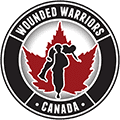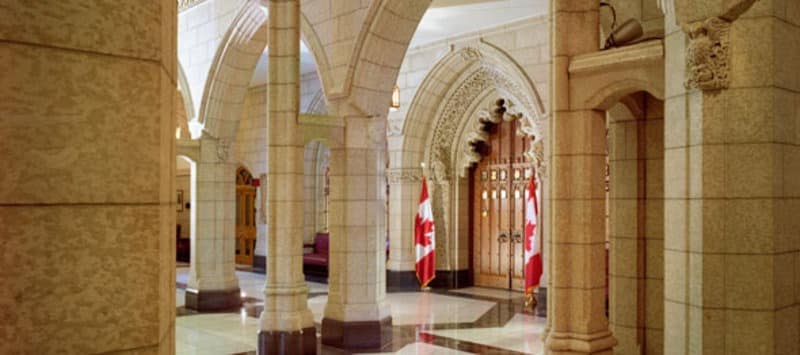Mr. Chairman and members of the Committee, on Behalf of WoundedWarrriors.ca we are truly honoured to be invited to appear before this committee and to be part of the important discussion on the transition of Canadian veterans to civilian life. We would also like to thank the Chair, who has long been respected as a champion for the mental health of veterans – an issue that is very near and dear to our hearts as a charity.
By way of introduction, my name is Phil Ralph. As Program Director of WoundedWarriors.ca I oversee the implementation of a robust and exciting slate of programming benefiting Canadian Veterans. I currently serve our nation as the Regimental Chaplain to the 32 Combat Engineer Regiment in Toronto a position I have held for over two decades. In that capacity I have been exposed to challenges and needs of today’s veterans. I also serve as the full time Pastor of a busy suburban congregation.
I am pleased to have present with me today Wayne Johnston, founder of WoundededWarriors.ca, with four decades of service within the CF having served as an Assisting Officer and is most widely known as the Repatriation Officer for the fallen in Afghanistan. This is arguably one of the most emotionally stressful tasks to befall any officer in the CF.
Founded in 2006, Wounded Warriors.ca is a non-profit charitable organization that helps Canadian Forces members – be they full time or reservists – who have been wounded or injured in their service to Canada.
We help find solutions for current and former members of the Canadian Forces where gaps have left them in need. While providing programs to all members of the Canadian Forces who have been wounded or injured, our primary focus is on reservist mental health. Our secondary focus is on physical health support, and tertiary focus is on life skills development for all members of the Canadian Forces who have been wounded or injured.
From our initial and continuing project of establishing a Comfort Fund for Wounded Soldiers while recuperating in hospital in Landstuhl, Germany, to scores of individual support projects, establishment of a hand up program, outreach programs to homeless veterans, and current initiatives to address the explosion of Operational related Stress Injuries, we are committed to assist and advocate for these Canadian Heroes.
As our Charity continues to grow and expand nation-wide, so too has our programming and partnerships. 2012, in particular, has been an extremely robust year for WoundedWarriors.ca. Under the umbrella of our All The Way Home Program, we have:
- Taken 20 CF members battling with mental health on the BIG BATTLEFIELD BIKE RIDE 2012
- Hosted 80 reserve members at our Blue Mountain Retreat
- Hosted more than 100 Canadian and American soldiers who have been injured serving their countries in Nipawin, SK for a weekend of camaraderie and mental healing
- Renewed our funding for 2013, to the VAC Vancouver Homeless Veteran Program. This is in addition to the previously provided $31,000 to this project and $45.000 to the Montreal VAC Homeless outreach Program.
- Provided funding to OSSIS peer group support requests
- Provided a $100k grant to the University of British Colombia to help expand their Veteran’s Transition Program
- And last Friday we were pleased to announce funding support to MSAR Elite Service Dogs and their program of providing specially trained service dogs to veterans suffering with PTSD – as featured recently on CTV’s W5. I understand this committee will hear from this organization later this week.
Much of our work, as our programming highlights, is targeted towards ensuring our returning veterans, suffering from a range of personal health & financial issues, are supported as they transition to civilian life. On our way here today, for example, we received a phone call from one such individual who came on our bike ride and has since been accepted into training as a carpenter. As part of this, we committed to providing the equipment for him to be able to enter into the program.
The unique circumstances of Military Service coupled with personal and environmental factors affect and shape Members of the Canadian Forces. It is obvious to all of us that everyone is affected by the world they interact with. When members of the Canadian Forces return home they have been changed by their service. For some these changes are as obvious as the physical scars they bear. Some have learned to appreciate life all the more; for others the scars are invisible. In some ways it is as if they left a part of themselves “over there.â€
Friends and loved ones of those members affected by operational stress injuries often remark that the person who returned is not the same person that deployed. The goal of Wounded Warriors “All the Way Home†Program is to empower members suffering from operation stress injuries and related conditions to return home in a holistic manner: psychologically, physically, financially and spiritually.
Anyone affected by OSI’s face a number of obstacles and challenges on their road to recovery and transition to civilian life. Within the Canadian Forces Community the challenges are particularly daunting for members of the Primary Reserve. They are the most vulnerable and most often forgotten sufferers.
Working in conjunction with those who provide care to Canadian Forces Members – including CF Health Services, OSSIS, Unit Chaplains, DCSM and other interested partners WoundedWarriors.ca seeks to encourage members to avail themselves of the programs and services that are in place while providing a healthy environment to assist in their recovery.
Last Tuesday, Wayne and I were among those who were privileged to hear Senator Dallaire address the Canadian Military and Veteran Health Research Forum in Kingston. Senator Dallaire spoke out urging the nation not to allow the downloading of the unique needs of Veterans and their families to the Provincial system. We as a nation have a responsibility to care for those who have placed themselves in harm’s way from our country and its security.
The often unspoken reality is that for members of the Primary Reserve, whom Canadian Forces leadership have spoken of as being essential to their ability to accomplish their mission, they return home with little support requisite to manage the transition to civilian life. Those that have provided 30% of the effective deployed forces return to a civilian society ill equipped to appreciate, recognize, or deal with their needs. Further, should they seek to access the programs that are in place, they often feel abandoned due to the realities of time and space coupled with the pressures of trying to provide for themselves and their families.
What’s more, members of the Primary Reserves face the real risk of losing their civilian job due to injuries resulting from their service (this is particularly true with respect to mental health injuries). In addition to this, they face a real challenge getting on Reserve Force Compensation, commonly referred to as Dis Comp, when a mental health issue manifests itself after their final 30 days of class C service.
Financial stability is a very important aspect of a veteran’s ability, or inability, to properly transition to civilian life. Honourable members of the Committee, we know that financial security often goes hand in hand with health care and wellbeing. The CF has a moral obligation to ensure the injured member can look after their family financially.
Finally there is the real issue of lack of family care benefits when on Reserve Force Compensation. Unlike their Regular Force counterpart, the Reservists family has no health care benefits nor can they get them by paying into the Civil Service health care plan. This continues to cause real angst and great pressure on their families.
WoundedWarriors.ca characterizes the issues I have raised thus far as the “gaps†– both in services and programs, which our veterans face each and every day. It is directly a result of these gaps that we exist as a Charity and, most unfortunately, that the demand for our assistance is as real as it is today.
As we look forward to 2013, we are well on our way in the planning for the BIG BATTLEFIELD BIKE RIDE 2013; a proposed horseback adventure; and other initiatives all while working collaboratively with those who seek to improve the lives of Veterans and their families.
From our day-to-day interaction with our veterans and their families, we would be remiss if we did not offer some practical suggestions as to what the CF and VAC can do to better address the need that exists on the ground. For example:
- Eliminate long administrative delays for receipt of Awards and compensation.
- SISIP Needs to be broader in their coverage definitions particularly in the area of education both in terms of programs offered and duration covered.
- Improve retraining and education by providing the tools such as laptops and related tools of their chosen trade to enable them to complete their education and compete in the real world.
In closing, and on a personal note, Col the Hon William M. Kelly served the Upper House for many years and was a former member of this committee. A wonderful man whose personal friendship I cherish. I believe he would be particularly pleased to know that this committee is continuing to look out for the needs of our veterans.
We thank the committee for their invitation and wish you every success as you work on behalf of our Veterans. We remain at your disposal should the Committee have further questions particularly regarding Veterans stories our programs and fundraising initiatives.

